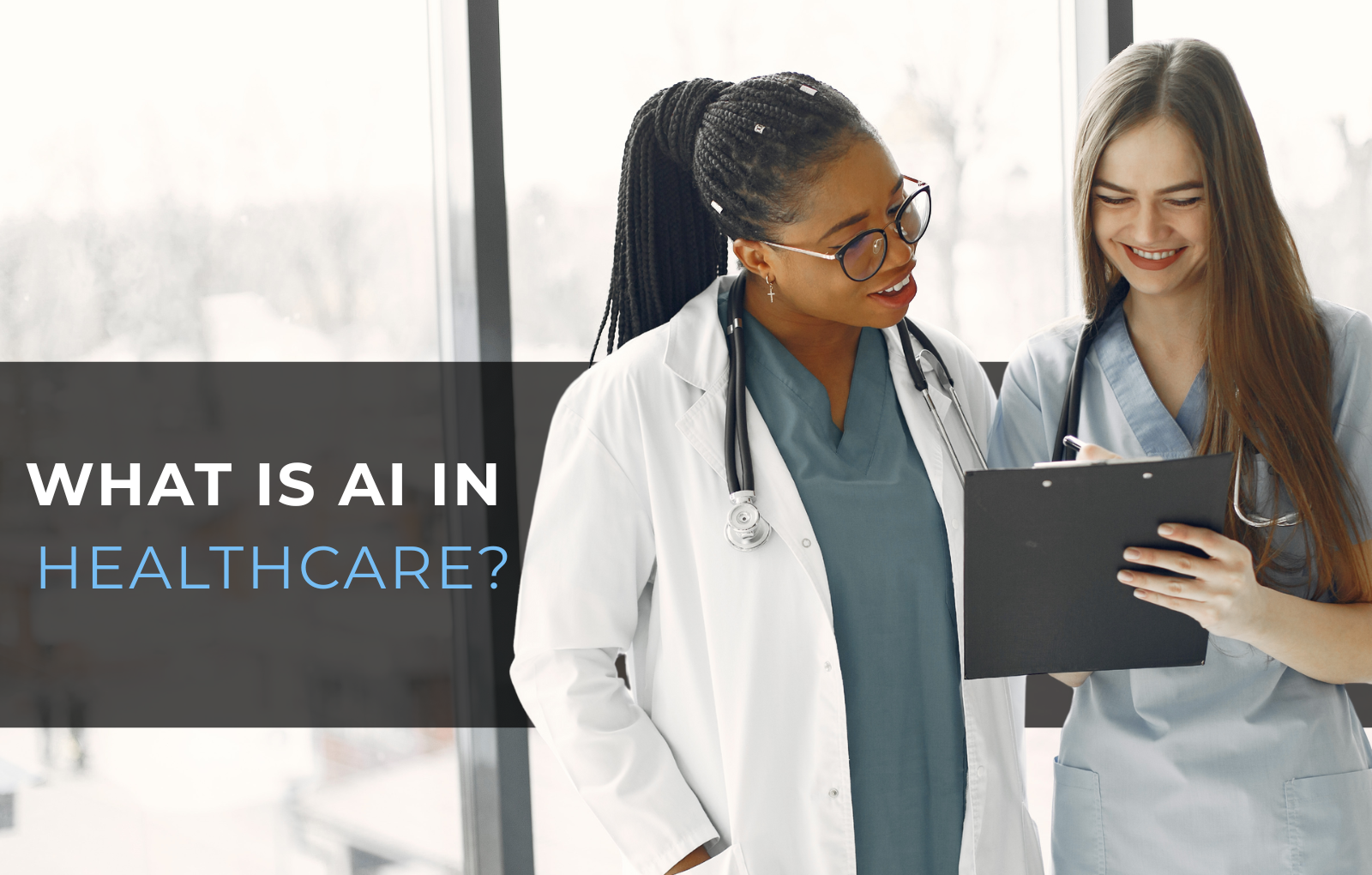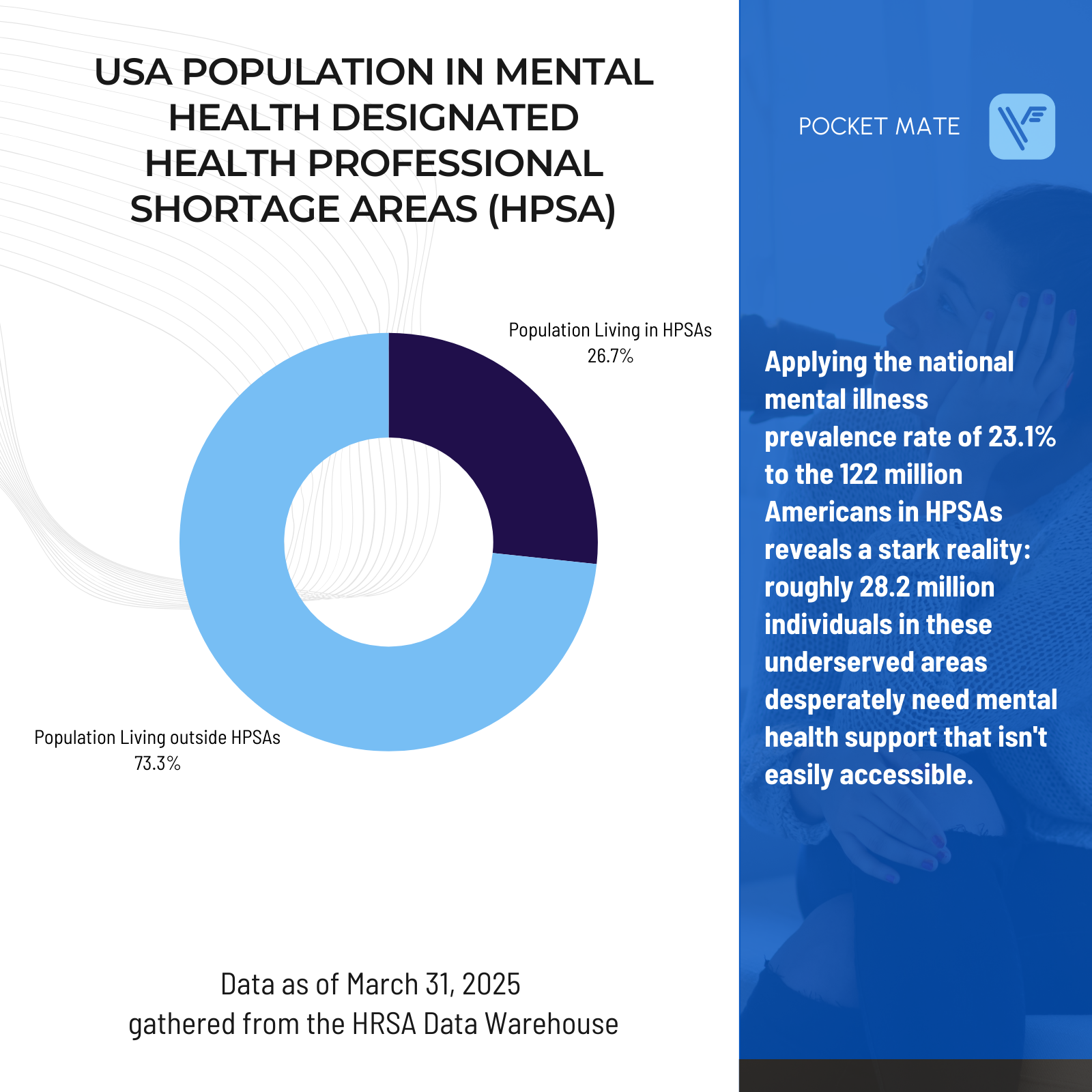
Artificial Intelligence might sound like something out of a science fiction movie, but in healthcare, it's quickly becoming a powerful tool to help patients worldwide. At its simplest, the answer to “what is artificial intelligence in healthcare?” is that healthcare professionals can use computer programs to do tasks that usually need human thinking. This kind of tool helps facilitate faster healthcare deductions, provide healthcare access to a wider patient base, and more. However, there are some concerns about the ethics involved in something such as this.
The most important thing to understand is that AI in healthcare isn't about replacing doctors, nurses, or other medical professionals. Instead, it's about giving them a powerful assistant, a tool that helps them do their jobs better, faster, and with more accuracy. It's about making healthcare smarter and more accessible for everyone.
So, how exactly does AI lend a hand in healthcare? Well, there are many different things that AI is being used for.
On a clinical level for healthcare professionals, AI is helping by taking huge amounts of medical data, things like patient records, lab results, X-rays, and even information from smartwatches, and finding patterns or insights that would take humans a very long time, or even be impossible, to discover on their own. This helps your doctor understand your daily habits and symptoms better so they can provide you with a more accurate diagnosis.
On a patient level, AI is helping by providing cheaper and more accessible healthcare to a wide range of individuals who may not have the means to access healthcare otherwise. For example, AI chatbots for mental health support have seen a rise in popularity as they provide individuals with a 24/7 companion to help ease their minds in times when they can not get access to their therapists, like in the middle of the night. These chatbots aren’t meant to be the only provided therapy for individuals, but they are meant to help fill in the gaps of time when patients need a companion to listen.
While the benefits of AI in healthcare are vast, it's natural to have questions and concerns about its potential downsides. When we talk about AI, especially patient-facing tools like chatbots, a few common worries often come up:
These are important concerns. We at Pocket Mate believe that the responsibility for the use of AI lands with the companies providing these resources. With an AI chatbot for self-help support, Pocket Mate feels it’s our duty to ensure these concerns and issues are tackled from the start of development, before an AI product such as ours even becomes available to the public. That is why we have implemented a HIPAA-compliant data collection policy, a constant assessment strategy to ensure our AI Listener is providing support in the best way possible, and a foot forward in the industry as a reliable source of information for all things AI in healthcare.
So, what is artificial intelligence in healthcare? AI has the potential to do great things, and if handled properly by developers and organizations, the good generally outweighs the risks.
The key to understanding AI's value is to see it as a support tool, not a replacement. AI is not meant to replace any living human. It is here to facilitate greatness from each of the individuals by creating an environment where parsing through data doesn’t take hours, where patients in Health Professional Shortage Areas (HPSAs) don’t have to wait days at a time before accessing immediate relief in self-help support.

| The Greatness AI Can Achieve | How It Can Be Achieved |
|---|---|
| Accuracy and Safety | Reputable AI healthcare tools, like AI Listener by Pocket Mate, are built with strict safety protocols. They're designed to offer information and support, never diagnoses or crisis intervention. We minimize misuse by consistently reminding users that the app isn't for emergencies and by providing clear access to necessary human resources. |
| Unprecedented Accessibility and Affordability | For millions who can't afford traditional therapy or face long wait times, AI offers immediate, low-cost access to mental health support resources. This makes support available to everyone, anytime, regardless of where they live or how much money they have. Getting help right away can stop smaller issues from getting worse. |
| Medical Privacy and Security | The widespread discussion around AI's privacy implications has actually pushed developers to build these platforms with incredibly robust security. Companies are often HIPAA compliant, using advanced encryption and strict data policies to ensure patient information is protected. For many, the anonymity of an AI chatbot feels safer than sharing vulnerabilities with a human, encouraging them to seek help sooner. Paradoxically, this intense public and regulatory scrutiny on AI-powered mental health apps often means their security measures are more rigorously developed and frequently updated than those in some traditional healthcare institutions. Legacy systems in hospitals and clinics, while also subject to HIPAA, may not face the same level of constant, intense public and media pressure specifically on their data handling, making newer AI platforms, in some aspects, more proactively secured due to this spotlight. |
| Personalization in Healthcare | While AI doesn't "feel" in the same way humans do, it excels at learning from your interactions. An AI chatbot can tailor coping strategies, exercises, and conversations to your unique needs, making the support highly relevant and engaging. This personalized approach can help you build healthier habits and track your progress in a way that feels supportive and empowering, without the pressure of human judgment. |
In essence, AI in healthcare, particularly patient-facing chatbots, acts as a vital bridge. It provides a readily available, affordable, and private first step into mental health support, guiding users with personalized tools and ensuring they have access to human care when it matters most. The potential to reach more people, provide immediate comfort, and empower self-management far outweighs the manageable risks, especially with continuous development and ethical oversight.
Ultimately, to answer the question of what is Artificial Intelligence in healthcare, we at Pocket Mate say that it’s about creating a more intelligent, responsive, and patient-centered system. It's not about replacing the irreplaceable human element of care, the empathy, judgment, and personal connection that only humans can provide. Instead, AI serves as a powerful partner and companion, augmenting the capabilities of healthcare professionals and making support more accessible to everyone. By understanding and embracing AI's role, we can look forward to a future where healthcare is more efficient, more accurate, and more focused on individual well-being.
Pocket Mate dreams of bringing mental health support to every underserved community. Our AI chatbots make this possible, but we understand the immense responsibility. That's why we implement rigorous safety protocols and methodologies to create a secure environment for all our users.
Ready to explore accessible support and start your healing journey today? Download AI Listener today.
**NOTE: AI Listener is not a crisis center. If you need immediate support, please contact the National Suicide Crisis Prevention Hotline: Call 988, The National Suicide Prevention Lifeline: 800-273-8255, Crisis Text Line: 741741
Copyright © 2025 Pocket Mate AI ™